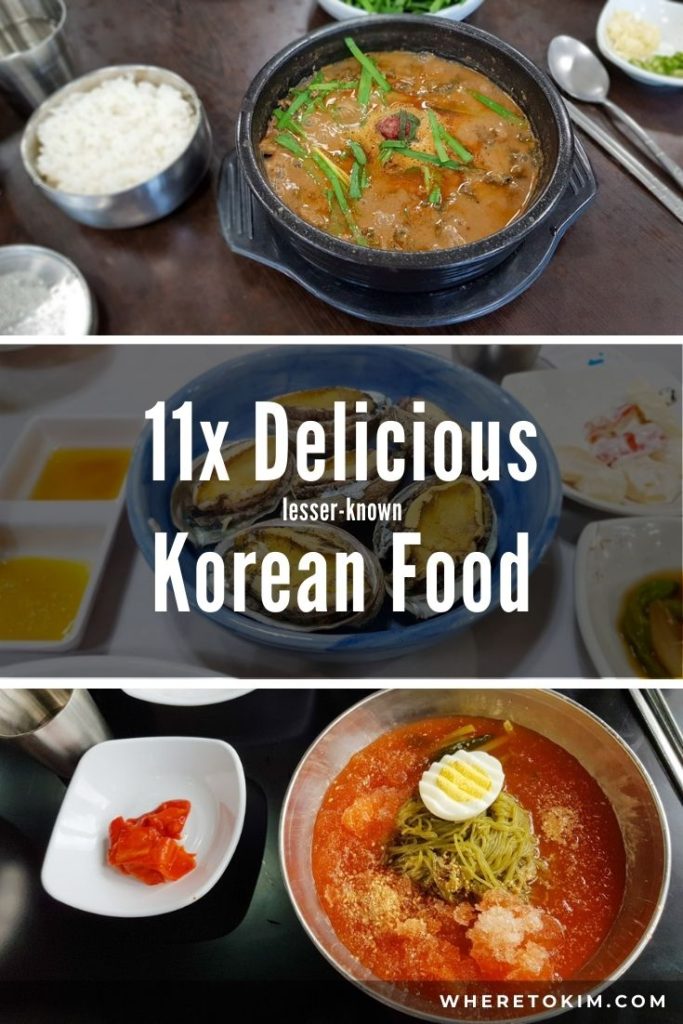Have you already tried all the famous Korean dishes? Then it’s time to try other delicious dishes that many foreigners have never heard of.
1) Chuotang (추어탕)
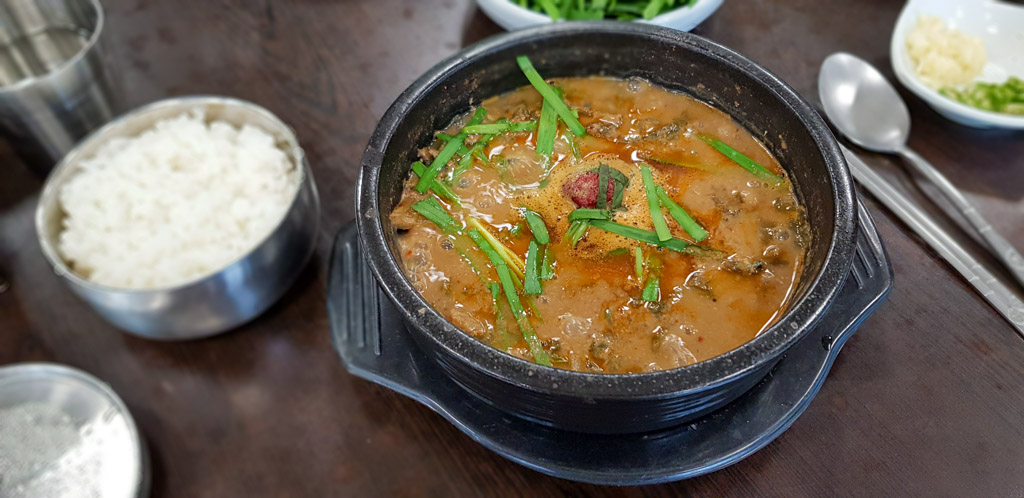
Chuotang is the Korean nickname for Mudfish Soup or Pond Loach Soup. You’ll also find it on the menu as 미꾸라지탕. This is my favorite dish! The boiled and afterward sieved loach is added to a beef or chicken broth and boiled again. The seasoning consists of gochujang (red pepper paste), doenjang (soybean paste), ginger and black pepper. The vegetables vary per restaurant.
Although Namwon is famous for this dish, you can also order this on islands like Jeungdo and Ganghwa. In the mud on the terrain of Jeungdo’s Salt Farm, you can see the mudfish in action.
2) Raw Marinated Crab (게장)
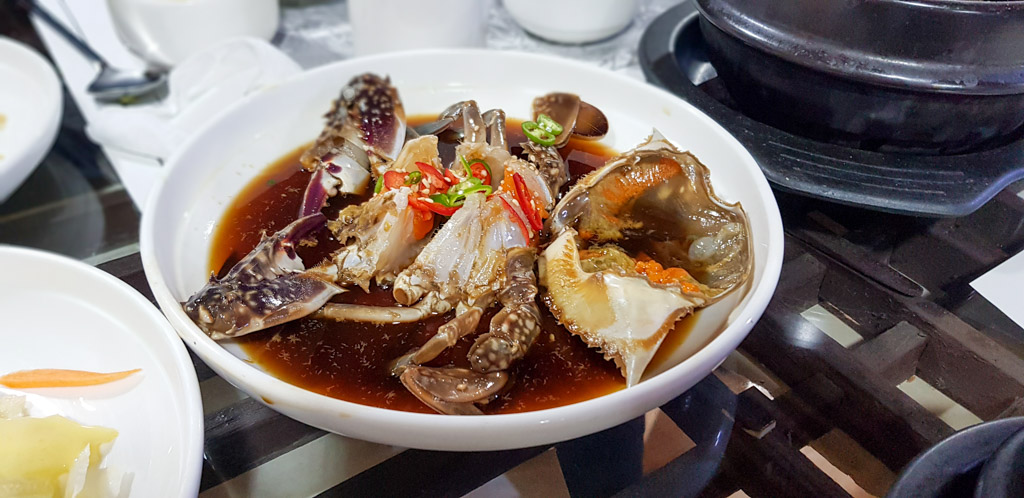
With this dish you are in for a challenge. Unless you are a pro at dissecting crabs.
Fresh crabs are marinated with either a soy sauce to make 간장게장 or a spicy marinade to make 양념게장. As before, the best chance of finding these dishes is on islands like Ganghwa and Yeosu. Restaurants specialized in this dish will also serve tiny raw marinated crabs as side dishes.
3) Beef Patties (장산적)
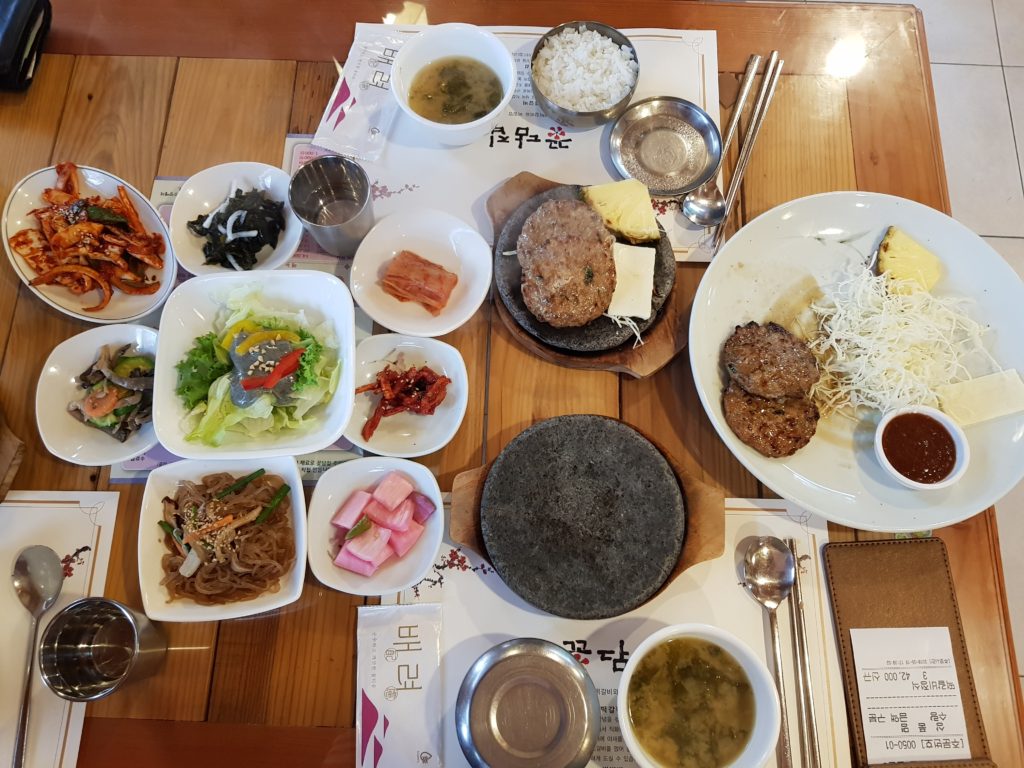
Beef Patties are a mix of pork, beef, tofu and seasoning. These patties are then broiled in teriyaki sauce. A good place to order beef patties is in Jeonju’s Hanok Village where you will get them with pineapple slices and cheese on the side.
4) Sundae (순대)

Sundae is Korean style blood sausage usually made with pig’s intestines stuffed with rice and other ingredients. You can often buy sundae as a snack on the street or at festivals. Do give it a try! Sundae soup (순대국) is very delicious.
In Sokcho’s Abai village you can try a variety with squid instead of pig’s intestines.
5) Naengmyeon (냉면)
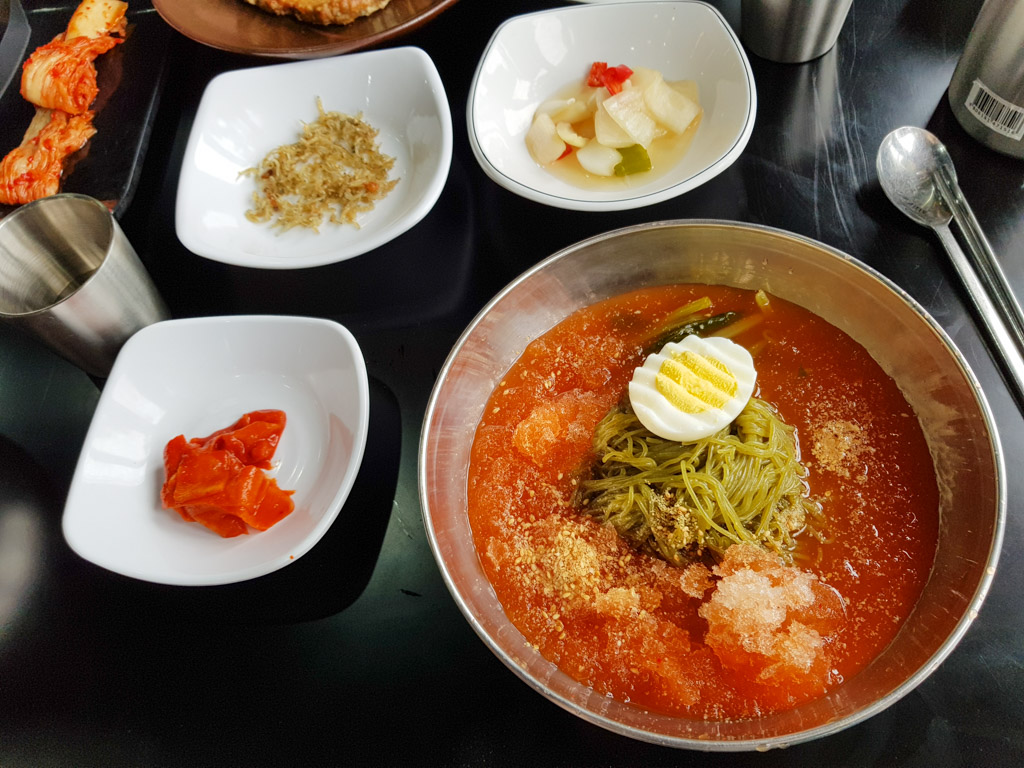
Naengmyeon is a cold noodle dish that is very popular in summer. You will often find thin, long and handmade buckwheat noodles inside an icy broth, though other types of noodles are used as well.
6) Sundubu-jjigae (순두부찌개)
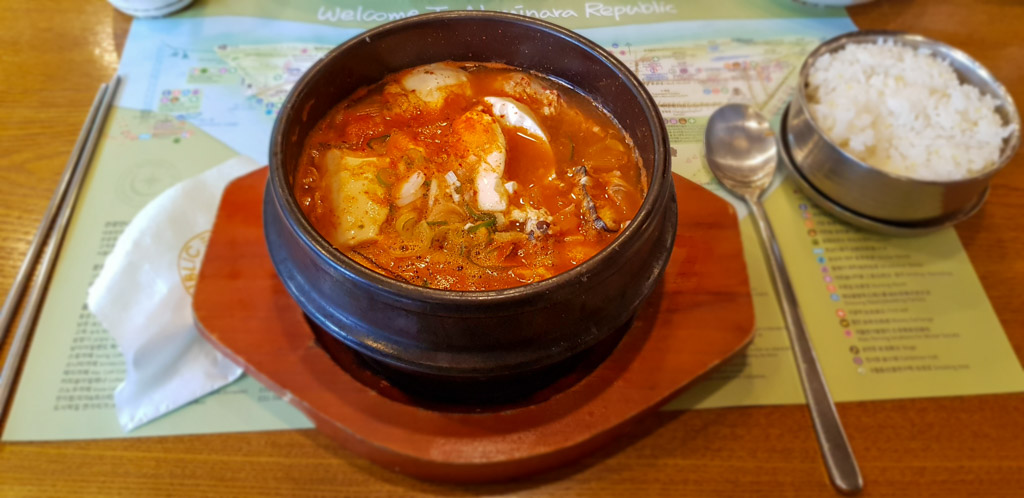
Sundubu-jjigae is a spicy soft tofu stew. It is delicious, easy to digest, and perfect for every occasion. The basic ingredients are soft tofu, mushrooms, onions and red pepper paste or powder. You’ll find this stew in many varieties, for example with seafood (clams, mussels, shrimps) or meat (beef or pork). It is served sizzling hot.
If you prefer a less spicy stew, choose Doenjang-jjigae, a stew flavored with soybean paste.
7) Gomtang (곰탕)
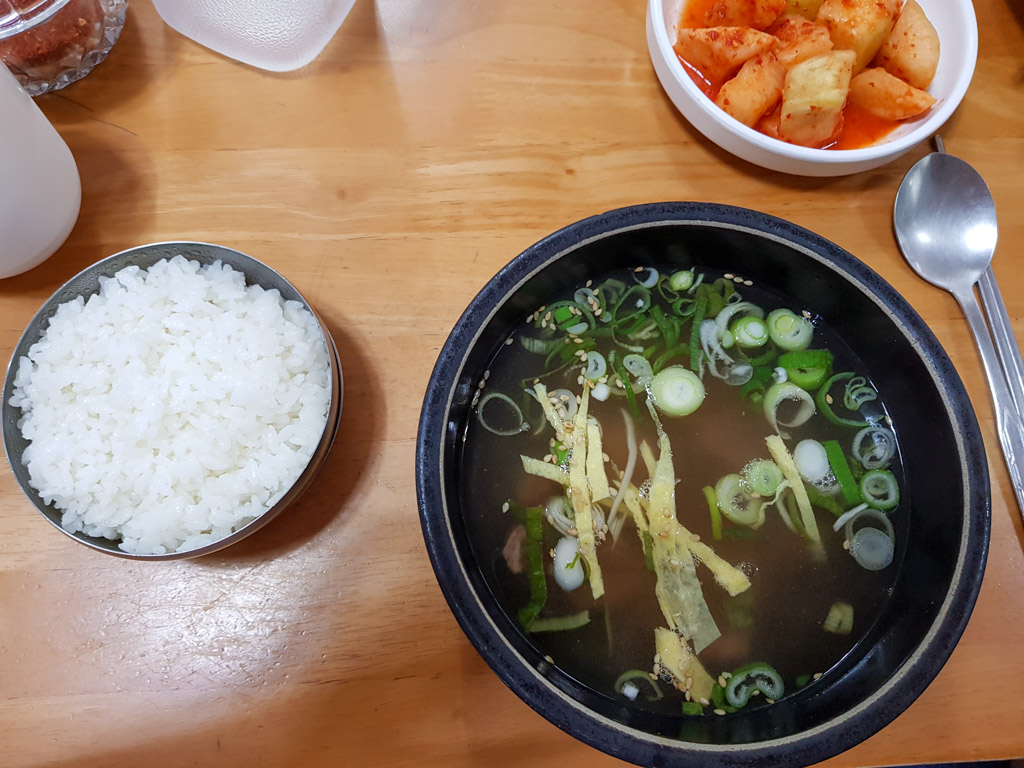
Gomtang is a beef broth soup made with parts of beef like oxtail, ribs and brisket. A healthy soup with a milky (or brownish) color perfect for days when you have a low appetite.
8) Gyeran-jjim (계란찜)
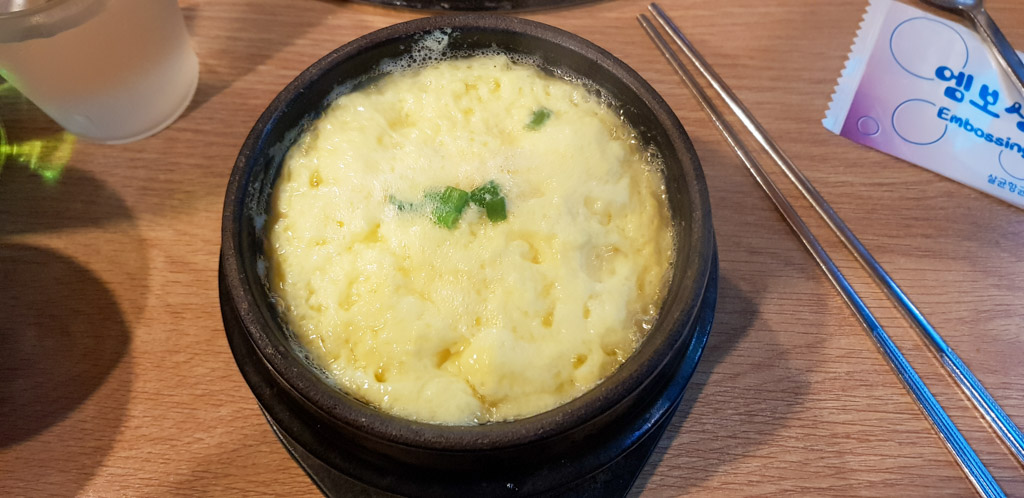
This steamed egg side dish can easily be made at home. Gyeranjjim is made with eggs, anchovy broth, salted shrimp or salt and scallions. You can add more vegetables (zucchini and carrots are good choices) if you like. It is often served in an earthenware pot. Other varieties use chicken broth and fish sauce or soy sauce.
9) Abalone (전복)
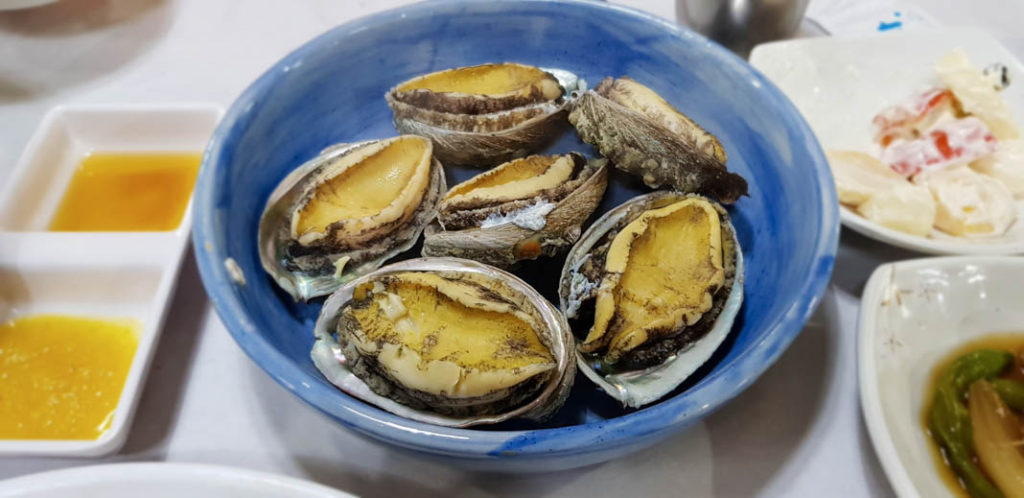
10) Grilled Eel (장어구이)
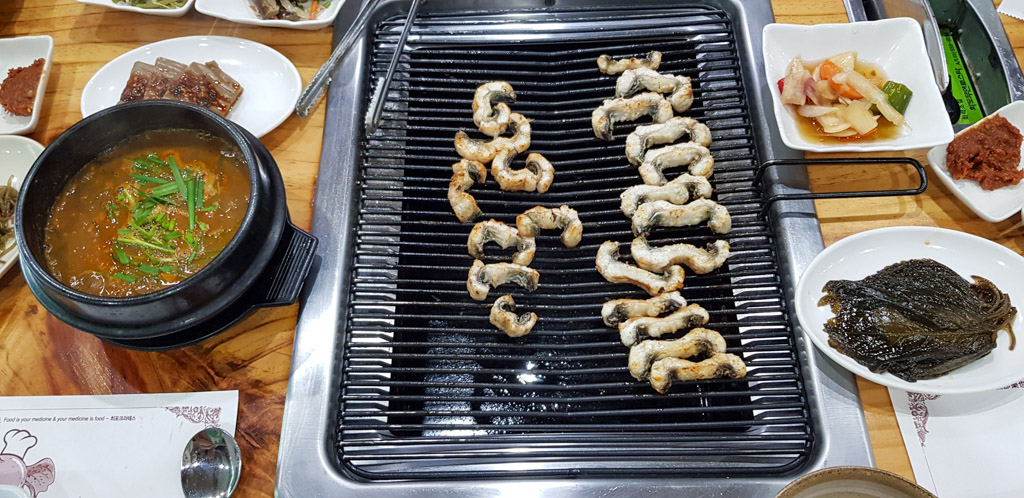
If you are visiting Busan, then Eel Street near Haeundae Beach should be high on your list. This street is home to all kinds of seafood and I even found a restaurant that served bulgogi as a side dish (for the only non-fish lover in our party). The grilled eel comes in many variations, both in taste and presentation. If you can choose, try to order one that is boned. When I ordered my dish, the bones were still in it and the restaurant owners expected me to wrap them in lettuce and eat them whole. That still baffles me.
11) Bossam (보쌈)
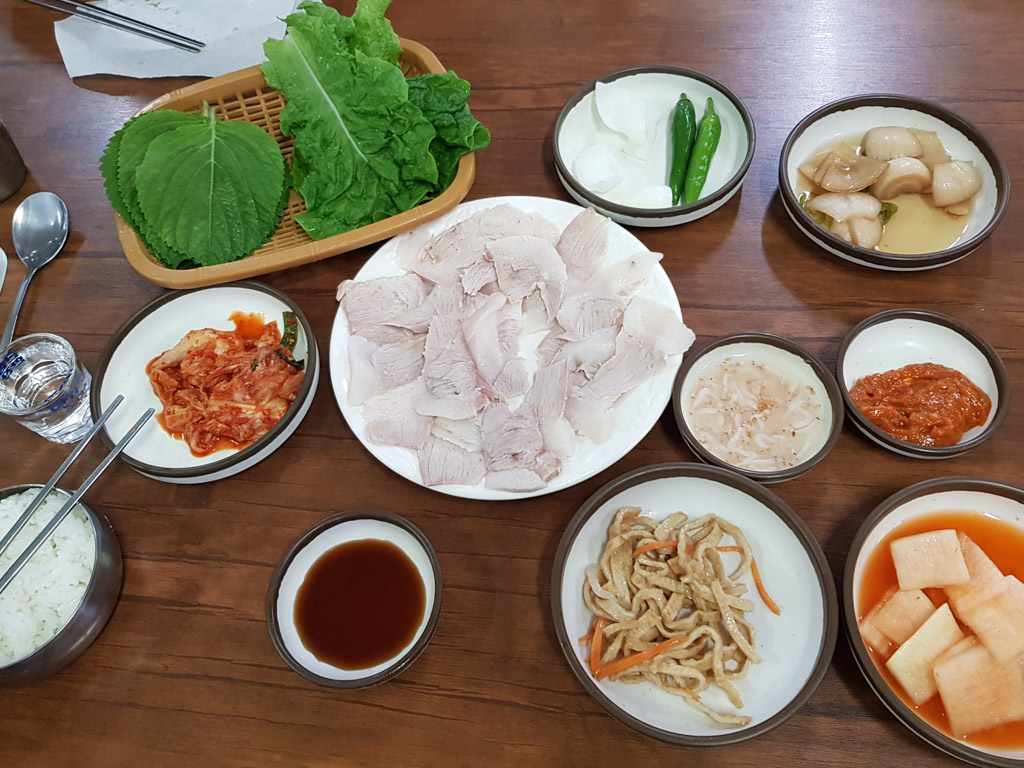
If you order Bossam, you will be served thinly sliced pieces of pork boiled in spices like star anise and ginger; the exact mixture varies. Like Korean BBQ, you wrap the pork with ssamjang (sauce), garlic, kimchi, lettuce or perilla leaves in one delicious package.
Traditionally, this dish is associated with the process of making Kimchi at the beginning of winter: a festive meal to thank the workers.
(Don’t mind the picture: the restaurant wasn’t that fancy. It can look way more delicious).
